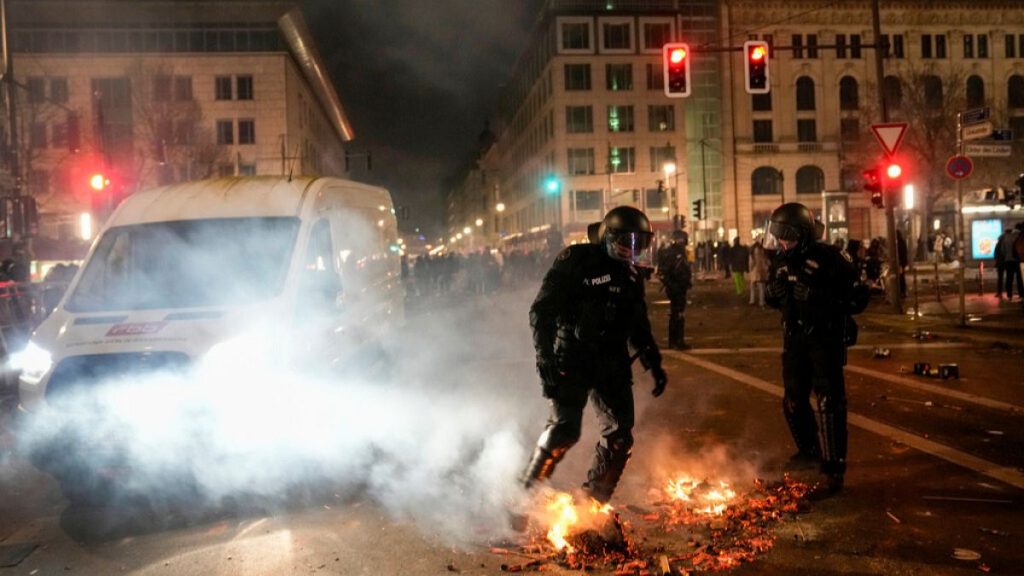The New Year’s Eve celebrations in Germany were marred by widespread violence and reckless use of fireworks, resulting in five fatalities nationwide and hundreds of arrests, primarily in Berlin. The incidents have sparked a national debate about stricter regulations on fireworks and harsher penalties for those who attack emergency responders. The severity of injuries this year was notably higher than usual, with many attributed to the illegal use of “kugelbomben” or bullet bombs, powerful explosives typically reserved for professional displays. These illegal fireworks are often imported from neighboring countries like Poland and the Czech Republic, prompting calls for tighter border controls to curb their influx.
The use of illegal fireworks wasn’t the only concern. Many of the injuries and fatalities were linked to homemade pyrotechnics that malfunctioned, highlighting the dangers associated with unregulated and often improperly constructed devices. While personal fireworks are legally available for a limited time around New Year’s Eve in Germany, the ease of acquiring illegal fireworks online and through other channels poses a significant challenge. This ready availability, coupled with a seemingly increasing trend towards more powerful and dangerous explosives, has contributed to the escalating violence and injuries observed during the celebrations.
The violence wasn’t limited to accidents involving fireworks. A concerning pattern of targeted attacks on emergency responders emerged, with reports of police officers, paramedics, and firefighters being assaulted with fireworks and other projectiles in several cities, including Berlin, Hamburg, Leipzig, Kiel, and Cologne. In Berlin alone, over 400 arrests were made following confrontations that left 30 police officers injured, including one who required surgery after being targeted with an illegal firecracker. These attacks have been condemned by officials and police unions, who have described the escalating violence as “brutalization” and “unbearable.”
The events of New Year’s Eve have prompted strong reactions from politicians and law enforcement officials, who are now calling for stricter regulations and harsher penalties. Proposed measures include stricter border controls to limit the import of illegal fireworks, increased penalties for the use of illegal pyrotechnics, and harsher sentences for those who attack emergency responders. Federal Interior Minister Nancy Faeser has advocated for a draft law that would impose up to five years in prison for individuals who lure emergency personnel into “dangerous ambushes,” urging its adoption before the upcoming national elections.
The debate over fireworks regulations is not new in Germany. Pyrotechnics associations have long argued that the majority of accidents and injuries are attributable to illegal and homemade fireworks, rather than legally sold products. However, the widespread availability of illegal fireworks and the increasing use of more powerful explosives, like bullet bombs, have amplified the risks. The current regulations, which permit the sale and use of personal fireworks for a limited period, are seen by some as inadequate to address the current situation.
The challenge lies in finding a balance between allowing citizens to enjoy the traditional aspects of New Year’s Eve celebrations, which include fireworks, and ensuring public safety. The increasing trend towards more powerful and dangerous fireworks, coupled with the targeted attacks on emergency personnel, necessitates a serious reevaluation of existing regulations and enforcement strategies. The tragic events of this year’s New Year’s Eve celebrations underscore the urgent need for effective measures to prevent similar incidents in the future. The proposed stricter border controls, harsher penalties for using illegal fireworks, and increased sentences for assaulting emergency responders are all potential steps towards addressing this complex and concerning issue.














